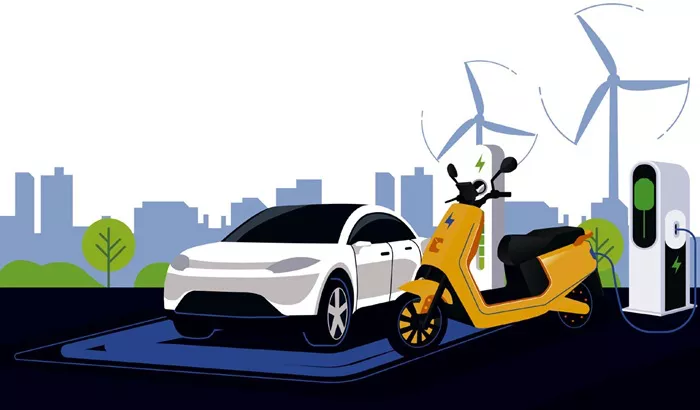HYDERABAD: Telangana is experiencing a significant shift towards electric vehicles (EVs), with a wide range of vehicles—from two-wheelers to buses—becoming more common on the roads. As of March 2025, the state has registered 2.59 lakh electric vehicles, representing 4.2% of the total eco-friendly vehicles across India.
EV registrations have grown rapidly, jumping from 1,06,835 in 2023 to 2,59,053 by March 2025, as reported by the Regional Transport Authority (RTA) and JMK Research and Analytics. In just the current financial year, Telangana has registered 72,740 EVs, surpassing last year’s total of 65,478. This growth shows how quickly the state is adopting greener transportation, especially in the capital city of Hyderabad.
Two-wheelers lead the charge in EV adoption, making up 83.36% of the total registrations. Four-wheelers follow at 11.29%, while three-wheeler carriages account for 3.08% and passenger three-wheelers make up 1.99%.
However, this rapid rise in EV usage has exposed some challenges, particularly a shortage of charging stations. With only 976 public charging points in the state, the infrastructure is struggling to keep pace with the growing number of electric vehicles.
Incentives Fuel Growth
One of the primary drivers of this shift is the state’s supportive EV policy. Telangana offers a 100% exemption from road tax and registration fees for electric vehicles. This incentive, which is valid until December 31, 2026, applies to a wide variety of EVs, including two- and four-wheelers, commercial passenger vehicles, three-seater auto-rickshaws, light goods carriers, tractors, and buses.
Hyderabad’s public transport system is also embracing clean energy. The Telangana State Road Transport Corporation (TSRTC) currently runs 236 electric buses in Hyderabad and plans to add 277 more by August this year. This effort is part of the larger “Pollution-Free Hyderabad” initiative, backed by both the state and central governments.
In a major boost, the central government has approved 2,000 electric buses for Hyderabad under the Prime Minister’s e-Drive scheme. The state aims to have a total of 2,800 electric buses operating within the Outer Ring Road (ORR), gradually replacing older diesel buses, which will be redeployed to rural areas.
Additionally, the state government has approved permits for 65,000 new eco-friendly auto-rickshaws in the city and ORR area. Of these, 20,000 will be electric, while another 20,000 will be powered by CNG or LPG. To further promote clean transportation, 25,000 existing petrol or diesel autos will be allowed to convert to electric power.


